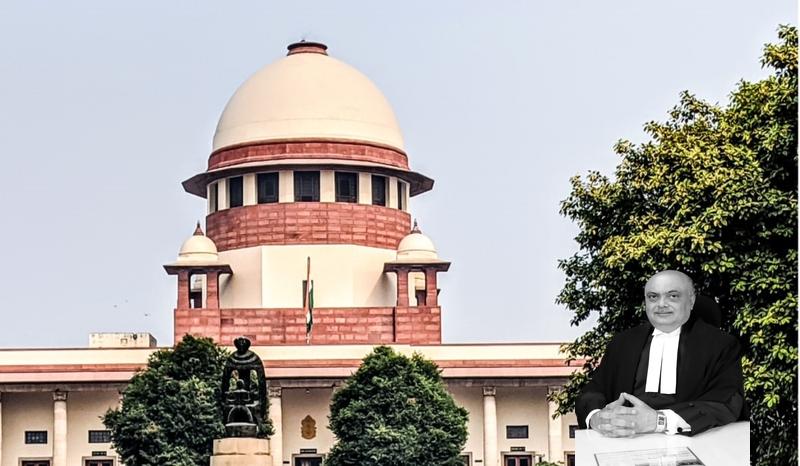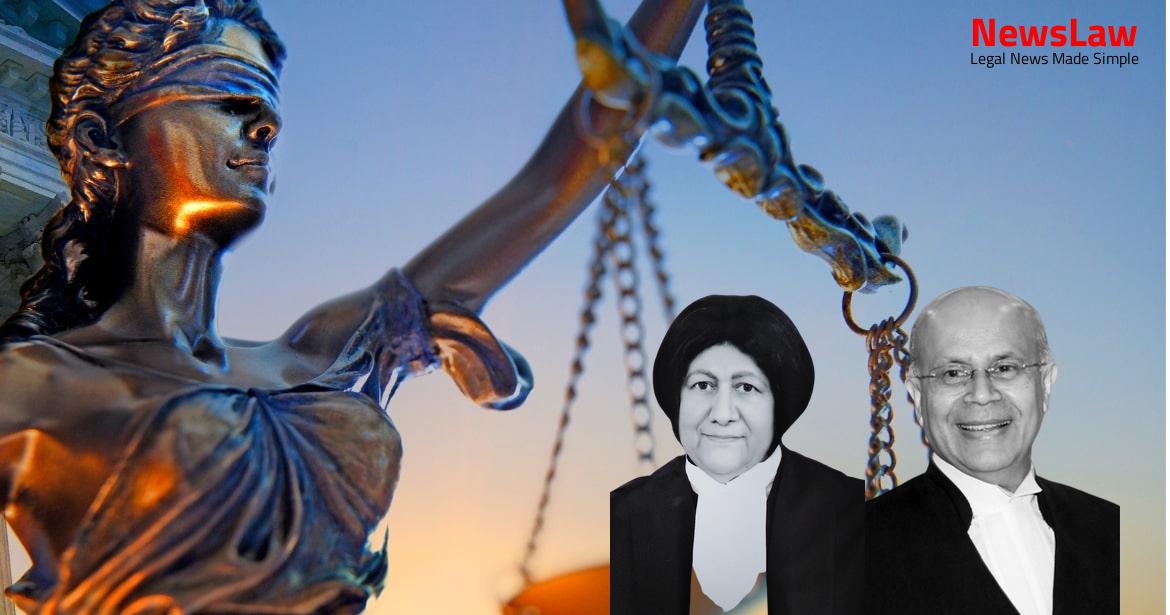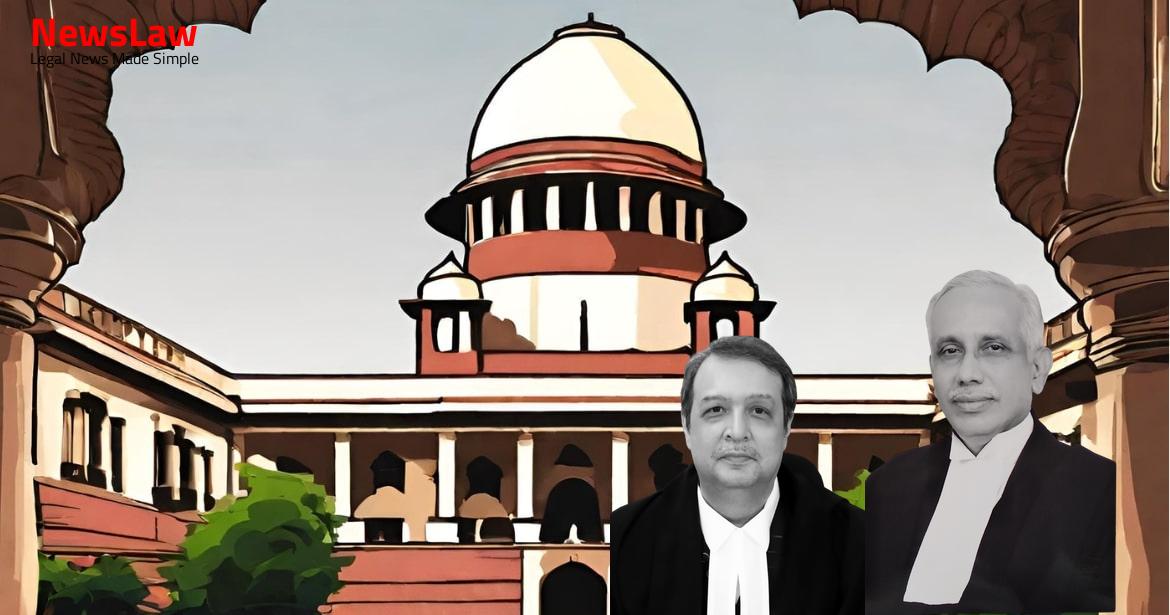The present appeal arises out of the Final Judgment and Order dated 12.03.2021 (hereinafter 2 referred to as the “Impugned Judgment”) passed in Criminal Miscellaneous No.42776 of 2013 by the High Court of Judicature at Patna (hereinafter referred to as the “High Court”) by which the prayer for quashing First Information Report No.87 of 2011 dated 19.03.2011 (hereinafter referred to as the “FIR”) registered at Dumraon Police Station, Buxar, Bihar under Sections 467, 468, 469 and 471 of the Indian Penal Code, 1860 (hereinafter referred to as the “IPC”), has been dismissed.
Also Read: https://newslaw.in/supreme-court/jurisdiction-of-nclt-in-valuation-of-assets-a-case-analysis/
It was alleged that some portion of the property of the 4 informant and others was sold to the present appellant and on such knowledge, the informant sent a Legal Notice to the PoA-holder directing him to give the details of the sale made in conspiracy with the appellant and a Notice was also given to revoke the PoA but the agent did not give any information/reply to the informant and others who had executed the PoA. During the pendency of Criminal Miscellaneous No.42776 of 2013 on the file of the High Court, originally filed for quashing the FIR, the appellant filed Interlocutory Application No.1261 of 2017 seeking amendment of the prayer to include quashing of the order dated 18.11.2014 mentioned above. Learned senior counsel drew the attention of the Court to the contents of the PoA, especially Clause 3 thereof and submitted that the same entitled the PoA-holder to execute any type of Deed and to receive consideration on behalf of the land-owners/executors of the PoA and get such Deed registered.
It was contended that the informant also filed Original Suit No.27 of 2011 in the Court of the learned Additional District Judge, Vikas Nagar, Dehradun for setting aside the Sale Deed executed in favour of the appellant by the PoA holder and for rendition of accounts, which was dismissed and it was found that the PoA- holder/agent was duly authorized thereunder to sell the property after receiving consideration 8 amount on behalf of the land-owners/principals, who were also not entitled to rendition of accounts. Thus, it was submitted that in a civil proceeding wherein the right of the PoA-holder to sell the property in question had been upheld and the appellant having bought the property from such PoA holder of the land covered under the PoA, the present FIR itself is misuse and abuse of the process of law, as far as the appellant is concerned. It was contended that while granting anticipatory bail to the appellant, the High Court by order dated 20.02.2014 in Criminal Miscellaneous No.44830 of 2013, which was heard and decided with Criminal Miscellaneous No.45146 of 2013 filed by the PoA- holder, the said PoA-holder had taken the stand 10 that he was ready to give/return the sale proceed amounts to the informant, without admitting to the case of the informant and subject to such condition, he was also granted anticipatory bail.
The contention that the respondent no.2 and others had no 11 knowledge of the Sale Deed dated 24.08.2000 could not be believed and the suit was also held to be time-barred as the prayer was for setting aside the Sale Deed dated 24.08.2000. As far as territorial jurisdiction is concerned, it was the stand of the learned senior counsel that the only link in the chain is that the PoA was executed at 13 Buxar, but in the present case, there is no dispute with regard to execution of the PoA and the dispute relates only to execution of the Sale Deed which occurred in Dehradun where the land lies.
Also Read: https://newslaw.in/supreme-court/unfair-charge-framing-a-legal-analysis/
Per contra, learned senior counsel appearing for respondent no.2 submitted that the case before the High Court was confined to the question of territorial jurisdiction and it was observed that the same depends upon evidence. The undisputed and admitted facts are 16 that the PoA was executed by the land- owners/principals, including respondent no.2 and others on 12.04.1994, in favour of the person from whom the appellant purchased the land on 24.08.2000.
Clause 11 of the PoA further makes it clear that the PoA-holder had the authority to sell movable or immovable property including land, livestock, trees etc.
In order to do so, this Court would test as to whether all the three clauses can independently be given effect to and still not be in conflict with the other clauses.
In this eventuate, Clauses 3 and 11 of the PoA together authorized the PoA-holder to execute deeds, including of/for sale, receive consideration in this regard and proceed to registration upon accepting consideration on behalf of the land-owners/principals. Thus, in the instant case, had it been a situation where the land-owners/principals had executed a Sale Deed in favour of any third party prior to the Sale Deed executed and registered by the PoA-holder with regard to the property in question, and the PoA-holder had not presented 21 the said Sale Deed and had gone ahead with himself executing and getting registered a different or a subsequent Sale Deed in favour of the appellant, the matter would be entirely different. That apart, we are mindful that even if we had perceived a conflict between Clauses 3 and 11, on the one hand, and Clause 15 on the other, we would have to conclude that Clauses 3 and 11 would prevail 22 over Clause 15 as when the same cannot be reconciled, the earlier clause(s) would prevail over the later clause(s), when construing a Deed or a Contract.
The PoA and its execution/registration not being in dispute, the only controversy relating to the Sale Deed executed by the PoA-holder in favour of the appellant in Dehradun for property located at Dehradun would thus, in the emerging factual matrix, clearly be an issue for the Courts at Dehradun to examine, much less give rise to any cause of action at Buxar.
We think it would be improper to drag the appellant into criminal litigation, when he had no role either in the execution of the PoA nor any misdeed by the PoA- holder vis–vis the land-owners/principals. Learned senior counsel for the respondent no.2 had submitted that the Trial Court be allowed to exercise power under Section 319, CrPC against the appellant, if warranted.
Case Title: BHARAT SHER SINGH KALSIA Vs. STATE OF BIHAR (2024 INSC 77)
Case Number: Crl.A. No.-000523-000523 / 2024



